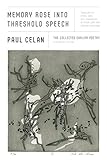Until March, my reading this year hummed along as usual: books for the seminar on biography I taught, background reading for assignments, the occasional book club novel. Then, of course, everything fell apart, in my mind as well as in the world. As soon as lockdown began, I found myself unable to read for any sustained period of time—a problem not as terrible as many others the pandemic brought, but difficult nonetheless. (I salute all of you who finished War and Peace, but I suspect you weren’t supervising multiple children in online school while trying to do your own work as well.) As an insomniac, I always do some of my best reading between 2 and 4 a.m., but now nothing held any appeal. I wrote about this in a piece for The New York Times Book Review about Stephen King’s latest fiction collection, If It Bleeds, which surprised me by being just what I wanted to read in those early pandemic days.
That book released me from my reader’s block. But I still wasn’t able to read in any systematic way, despite review assignments piling up and a deadline looming on my own book project. I started reading purely for entertainment, which usually eludes me as a critic. I gulped down Three Women by Lisa Taddeo and tried to reconstruct the intensive interviewing she must have done in order to insert herself so convincingly in her subjects’ minds; and The Motion of the Body Through Space, the latest novel by Lionel Shriver, about a former runner in her sixties, sidelined by a knee injury, who has mixed feelings when her husband unexpectedly decides to train for a triathlon—a shrewd and sardonic send-up of the contemporary American cult of exercise.
As March turned into April and then May with still no indication that our four-year-old would be back to school anytime soon, we hired a part-time babysitter, allowing me four or five hours alone at my desk on most weekdays. I started back to work in earnest on my book, a biography of Anne Frank, and will spare you the long list of Holocaust-related books I plowed through, except for two that made a particularly deep impression: Franci’s War, a memoir by Franci Rabinek Epstein, published decades after it was written by her daughter, Helen Epstein, herself a noted writer on the Holocaust and other subjects. A Czech Jew who was deported to Terezín, Auschwitz, and finally a labor camp near Hamburg, Rabinek Epstein likely survived by falsely claiming that she was a trained electrician, and miraculously managed to perform the electrical work with which she was tasked. In her afterword, Helen Epstein notes that in 1975, when her mother first attempted to publish the book, it was rejected everywhere, despite the fact that very few accounts by female Holocaust survivors then existed in English. The experiences of male survivors such as Elie Wiesel and Primo Levi were assumed to stand in for all survivors—but women’s experiences in the camps were often signally different from those of men, particularly because of the threat of sexual violence. Franci’s War led me to Women in the Holocaust, a compendium of scholarly articles examining the subject from myriad angles that again makes the point that what we think of as a “typical” Holocaust story tends to be the story of a man.
Now that I finally had time to get back to work, though, something strange happened. I found myself procrastinating on my research and assignments by reaching for books that had been sitting on my shelves for months or even years, books that had attracted my interest when they first came out but which I hadn’t managed to bring myself to read, perhaps because I was afraid of what I might find in them. The most significant of these was Tehran Children, in which the Israeli writer Mikhal Dekel investigates the route her father took as a Holocaust refugee, deported from Poland to a forced settlement in the Soviet Union and then to a collective farm in Kazakhstan before being airlifted from Tehran to Palestine in 1943. My grandparents, a decade and a half older than Dekel’s father, were deported to a similar forced settlement but were unable to reach Iran; they spent the war doing slave labor in the Soviet Union. Dekel’s book, as I must have subconsciously known it would, sent me down a rabbit’s hole of research into the circumstances of Jewish deportees in the Soviet Union during the war years. I’m not yet sure what shape this will take, but it feels important to pursue it.
I always feel lucky to review books for a living, but never more so than this year, when it was a true privilege to get paid for immersing myself in other worlds. I spent much of the summer poring over six different translations of Beowulf for a piece about Maria Dahvana Headley’s wild new rendering of the poem, which I hadn’t thought about since grad school. I distracted myself during the weeks before the election with the visionary poetry of Paul Celan, whose centenary was celebrated on November 23. A funny sort of escapism, maybe. But this year, I’ll take it in whatever form it comes.
More from A Year in Reading 2020
Don’t miss: A Year in Reading 2019, 2018, 2017, 2016, 2015, 2014, 2013, 2012, 2011, 2010, 2009, 2008, 2007, 2006, 2005















